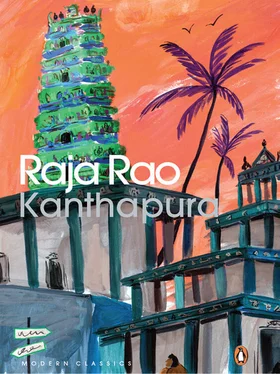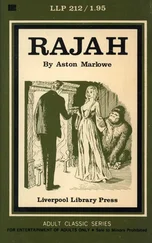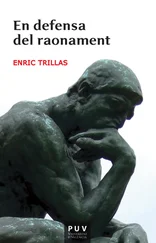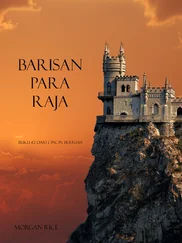Raja Rao - Kanthapura
Здесь есть возможность читать онлайн «Raja Rao - Kanthapura» весь текст электронной книги совершенно бесплатно (целиком полную версию без сокращений). В некоторых случаях можно слушать аудио, скачать через торрент в формате fb2 и присутствует краткое содержание. Год выпуска: 2014, Издательство: Penguin, Жанр: Классическая проза, на английском языке. Описание произведения, (предисловие) а так же отзывы посетителей доступны на портале библиотеки ЛибКат.
- Название:Kanthapura
- Автор:
- Издательство:Penguin
- Жанр:
- Год:2014
- ISBN:нет данных
- Рейтинг книги:3 / 5. Голосов: 1
-
Избранное:Добавить в избранное
- Отзывы:
-
Ваша оценка:
- 60
- 1
- 2
- 3
- 4
- 5
Kanthapura: краткое содержание, описание и аннотация
Предлагаем к чтению аннотацию, описание, краткое содержание или предисловие (зависит от того, что написал сам автор книги «Kanthapura»). Если вы не нашли необходимую информацию о книге — напишите в комментариях, мы постараемся отыскать её.
Kanthapura — читать онлайн бесплатно полную книгу (весь текст) целиком
Ниже представлен текст книги, разбитый по страницам. Система сохранения места последней прочитанной страницы, позволяет с удобством читать онлайн бесплатно книгу «Kanthapura», без необходимости каждый раз заново искать на чём Вы остановились. Поставьте закладку, и сможете в любой момент перейти на страницу, на которой закончили чтение.
Интервал:
Закладка:
And suddenly there was a screech and the sound of a horn, and we said, ‘Why, that’s the car!’ and we all thought that the bus had stopped at the fingerpost. Seenu and Vasudev, who are there, will stand, with shut eyes and gaping mouths, expectant. Then he’ll come down to us. First he; then his bundles. And people will say, ‘Who is he that people wait on him?’ Oh, if only we were there.
. And then he would take the road to Kanthapura, and we said he would be firm and soft-eyed and pilgrim-looking, and we imagined him with this look on his face and that flash in his eyes, and Pariah Lachamma said, ‘Maybe the goddess will send a wide rainbow and a rain of flowers to welcome him,’ and she stood there gaping at the skies and murmuring funny things to the goddess. And hearts began to beat, and yet we saw no Moorthy, and still no Moorthy, and still no Moorthy, and not a hair of his head was seen, and we were silent as though in the sanctum at the camphor ceremony. Still no Moorthy, and the bus had surely passed by the river, over the bridge and up the Santur valley, and Rangamma got so anxious that she sent Pariah Lingayya to run and see, and Pariah Lingayya ran and ran, and from the top of the road cried out, ‘No, no,’ and we all looked to this side and that and no Moorthy and no Seenu either was to be seen, and our hearts began to beat like drums, and Ratna said, ‘I’ll see if he’s come by the mango grove,’ and Ratna ran like a boy, and behind her ran young Chenna, and Chenna was followed by Cowherd Sidda; and then came a voice from the promontory, it was Sennu’s, and he was calling us, and we cried out, ‘What is it? What?’ and we rushed with the kumkum water spurting and splashing, and the flower garlands tearing in our hands and the coconuts heavy, and what should we see in the Brahmin Square but a cordon of policemen round Rangamma’s house, and Rangamma says, ‘Oh, what are they doing?’ and Seenu answers, ‘Why, Moorthy is here. They took him off the bus at Madur and brought him by the Elephant valley and the Bear’s hill by car,’ and Pariah Chenna says, ‘And we never heard them come,’ and Pariah Lingayya says, ‘Ah, they’ve been up to tricks again,’ and they speak to one another, and then such a cry came to their tongues that they shrieked out, ‘Vandè Mataram!’ and Rangè Gowda cries out, ‘Mahatma Gandhi ki jai!’ and the police inspector comes out of the house and says, ‘No shouting please. Please disperse.’ Pariah Lingayya and Rachanna cry out again, ‘Mahatma Gandhi ki jai!’ and the children who wanted to sing, began ‘Oh, such were our men of 1857’, and this boy and that boy takes it up and a shout of songs goes up the evening blaze, while a whirlwind rises and throws dust and sand into our eyes, and still the song rises and rises, and Rangamma comes up the veranda and says, ‘Brothers and sisters, in the name of Moorthy let us disperse,’ and we all stand silent as a jungle. And then Rangè Gowda says, ‘Let us obey the mother,’ and he goes towards his street, and Mada follows him, and then Mada’s brat, and then the Pariah women and the Pariah men, and we slip through our backyards and we stand on our verandas and see the policemen have gathered on Rangamma’s veranda, and Rangamma is listening to them, and Ratna is behind her, and by Ratna is Seenu, but Vasudev is nowhere to be seen. Perhaps he has already slipped back to the Skeffington Coffee Estate. The policemen do not leave Rangamma’s house till the nuptial dinner is over and the hands are washed and the betels chewed and the couple blessed. And as the guests walk back home, their glasses in their hands, they look at Rangamma’s house and say, ‘They’ve come again,’ and Nanjamma says, ‘Oh, they’ll bring us pain again,’ but there was something in the house, something in the very walls, said Nanjamma later, that seemed to shine and send out holy incense. Sister, Moorthy was back home.
At midnight the policemen walked away through the main street, and the Pariahs’ street and the Weavers’ street, but now a young Badè Khan had joined the bearded one, and he too came to live with us, and he too took a hut and a woman and settled down in the Skeffington Coffee Estate.
In the morning we saw Moorthy at the river. Why, sister, he was as ever — as ever. Why, when one goes to prison, one is as ever!
13
‘Now,’ said Moorthy, ‘we are out for action. A cock does not make a morning, nor a single man a revolution, but we’ll build a thousand-pillared temple, a temple more firm than any that hath yet been builded, and each one of you be ye pillars in it, and when the temple is built, stone by stone, and man by man, and the bell hung to the roof and the eagle-tower shaped and planted, we shall invoke the Mother to reside with us in dream and in life. India then will live in a temple of our making. Do you know, brothers and sisters, the Mahatma has left Sabarmati on a long pilgrimage, the last pilgrimage of his life, he says, with but eighty-two of his followers, who all wear khadi and do not drink, and never tell a lie, and they go with the Mahatma to the Dandi beach to manufacture salt. Day by day we shall await the news of the Mahatma, and from day to day we shall pray for the success of his pilgrimage, and we shall pray and fast and pour strength into ourselves, so that when the real fight begins we shall follow in the wake of the master.’
‘Meanwhile, brothers and sisters, let us get strong. The Congress men will have to swear again to speak truth, to spin their daily one hundred yards, and put aside the idea of the holy Brahmin and the untouchable Pariah. You know, brothers and sisters, we are here in a temple, and the temple is the temple of the One, and we are one with everything that is in the One, and who shall say he is at the head of the One and another at the foot? Brothers, and this too ye shall remember, whether Brahmin or bangle-seller, Pariah or priest, we are all one, one as the mustard seed in a sack of mustard seeds, equal in shape and hue and all. Brothers, we are yoked to the same plough, and we shall have to press firm the ploughhead and the earth will open out, and we shall sow the seeds of our hearts, and the crops will rise God-high. Brothers, that is the vision of the harvests that will rise, and we shall await, clean, with the heart as clean as the threshing floor, strong as the pivot of the pressing mill, and we shall offer our first rice and our first ragi to the Goddess Supreme. Pray, brothers, pray, for the Mahatma is on the last pilgrimage of his life, and the drums are beating and the horns are twirling, and the very sea, where he’s going to gather and shape and bring back his salt, seems to march forward to give him the waters of welcome. Let us be silent for a while and be united in the One.’
Seenu rang the gong, and the eyes shut themselves in silence, and the Brahmin heart and the Weaver heart and Pariah heart seemed to beat the one beat of Siva dancing.
Strength flowed from the wide heavens into the hearts of all men. And we sent our strength of heaven to the eighty-two pilgrim men of the Mahatma. And we too would start our pilgrimage soon, with Moorthy before us. ‘Prepare yourselves for action,’ said Moorthy, and Siva knows how, but we forgot the blowpipe and the child’s cradle and the letting-off of the morning cattle, and we would go out with him, Moorthy. What is in him, we ask, that binds our heart so? After all, we saw him as a child, sister. And yet. Moorthy told us of the pilgrim path of the Mahatma from day to day; for day after day the Congress committee sent him information, and day after day he received a white paper from the city, and day after day this boy and that young man came up with the Saturday carts or Tuesday carts, and now that there was a bus, sometimes as we sat kneading the vermicelli or cleaning the rice, we would see the tall khadi-clad Volunteers coming by the afternoon bus, and they went straight to Rangamma’s house, and they were shut up with Moorthy, and when they were gone, Moorthy would ask Seenu to ring the gong for the bhajan, and there he would tell us of the hundred and seventy patels that had resigned their jobs — a hundred and seventy, mind you — and of the thirty thousand men and women and children who had gathered at the roadside, pots and beds and all, to have the supreme vision of the Mahatma, and then Rangamma says, ‘Oh no, the Mahatma need not go as far as the sea. Like Harischandra before he finished his vow, the gods will come down and dissolve his vow, and the Britishers will leave India, and we shall be free, and we shall pay less taxes, and there will be no policemen.’ But Dorè, who hears this, laughs and says, ‘This is all Ramayana and Mahabharata; such things never happen in our times,’ at which Pariah Rachanna gets angry and says, ‘It is not for nothing the Mahatma is a Mahatma, and he would not be Mahatma if the gods were not with him,’ and Doré says, ‘Maybe, maybe, Rachanna, I do not know,’ and we say, ‘In five days time he will be by the sea — in three days time he will be by the sea — poor Mahatma, he must be tired out with this walk. Why should he not take a horse carriage or a motor car?’ But Moorthy repeats, ‘No, no, sister, he will not take it. He says he likes our ancient ways, and like the ancients he will make the pilgrimage on foot,’ and our hearts gladdened, for no one ever goes like that to far Kashi, do they? And our Nanjamma says, ‘Oh, yes, when he arrives by the sea, something is surely going to happen,’ and everybody says, ‘Maybe, maybe.’
Читать дальшеИнтервал:
Закладка:
Похожие книги на «Kanthapura»
Представляем Вашему вниманию похожие книги на «Kanthapura» списком для выбора. Мы отобрали схожую по названию и смыслу литературу в надежде предоставить читателям больше вариантов отыскать новые, интересные, ещё непрочитанные произведения.
Обсуждение, отзывы о книге «Kanthapura» и просто собственные мнения читателей. Оставьте ваши комментарии, напишите, что Вы думаете о произведении, его смысле или главных героях. Укажите что конкретно понравилось, а что нет, и почему Вы так считаете.












